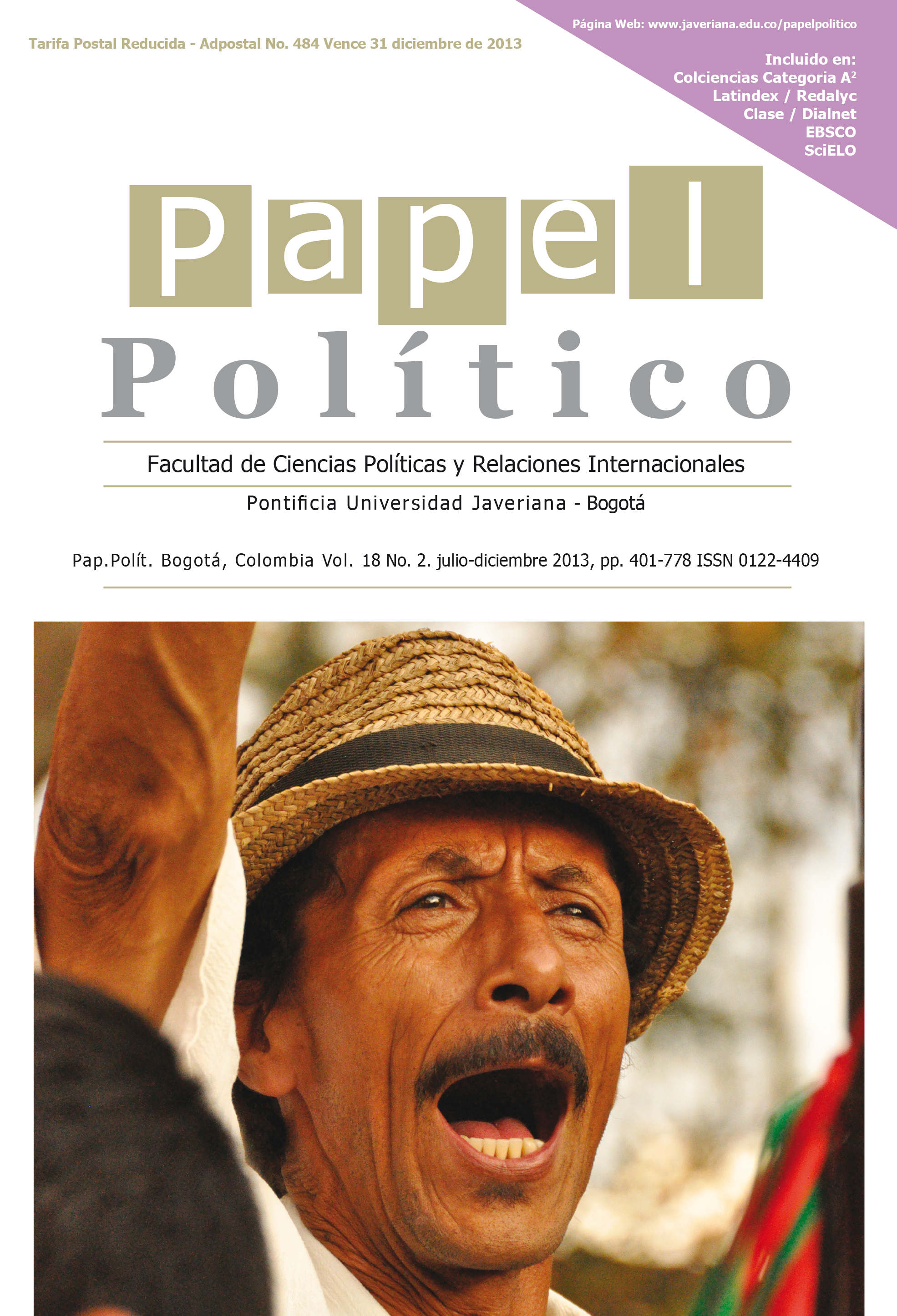Abstract
One optimistic expression that hides one of the most recurrent political phenomena in Colombianhistory was uttered by constitutionalist lawyer Diego Uribe Vargas: eternal “loyalty to the law and respect for juridical norms”, reinforcedby the idea of affection for democracy and its institutions. This situation contrasts dramatically with the political and partisan crises and the perennial constitutional and legal changes, which allows for an approximation to the so–called authoritarian use of the law as a consequence of the predominance of politics over the law; of the personality of whoever representsan institution and the will of whoever rules, over the theoretical constitutional mandate, of the rite that hides powerful interests. In order to unveil the phenomenon mentioned above, this article reviews two constitutional processes of the 19th century that shaped the political regime and whose permanent features, paraphrasing Hernando Valencia Villa, have perpetuated themselves and have resisted any change from above. Perhaps 1991 cracked the system to a certain extent but only time, the long time, could make it evident.This journal is registered under a Creative Commons Attribution 4.0 International Public License. Thus, this work may be reproduced, distributed, and publicly shared in digital format, as long as the names of the authors and Pontificia Universidad Javeriana are acknowledged. Others are allowed to quote, adapt, transform, auto-archive, republish, and create based on this material, for any purpose (even commercial ones), provided the authorship is duly acknowledged, a link to the original work is provided, and it is specified if changes have been made. Pontificia Universidad Javeriana does not hold the rights of published works and the authors are solely responsible for the contents of their works; they keep the moral, intellectual, privacy, and publicity rights.
Approving the intervention of the work (review, copy-editing, translation, layout) and the following outreach, are granted through an use license and not through an assignment of rights. This means the journal and Pontificia Universidad Javeriana cannot be held responsible for any ethical malpractice by the authors. As a consequence of the protection granted by the use license, the journal is not required to publish recantations or modify information already published, unless the errata stems from the editorial management process. Publishing contents in this journal does not generate royalties for contributors.


